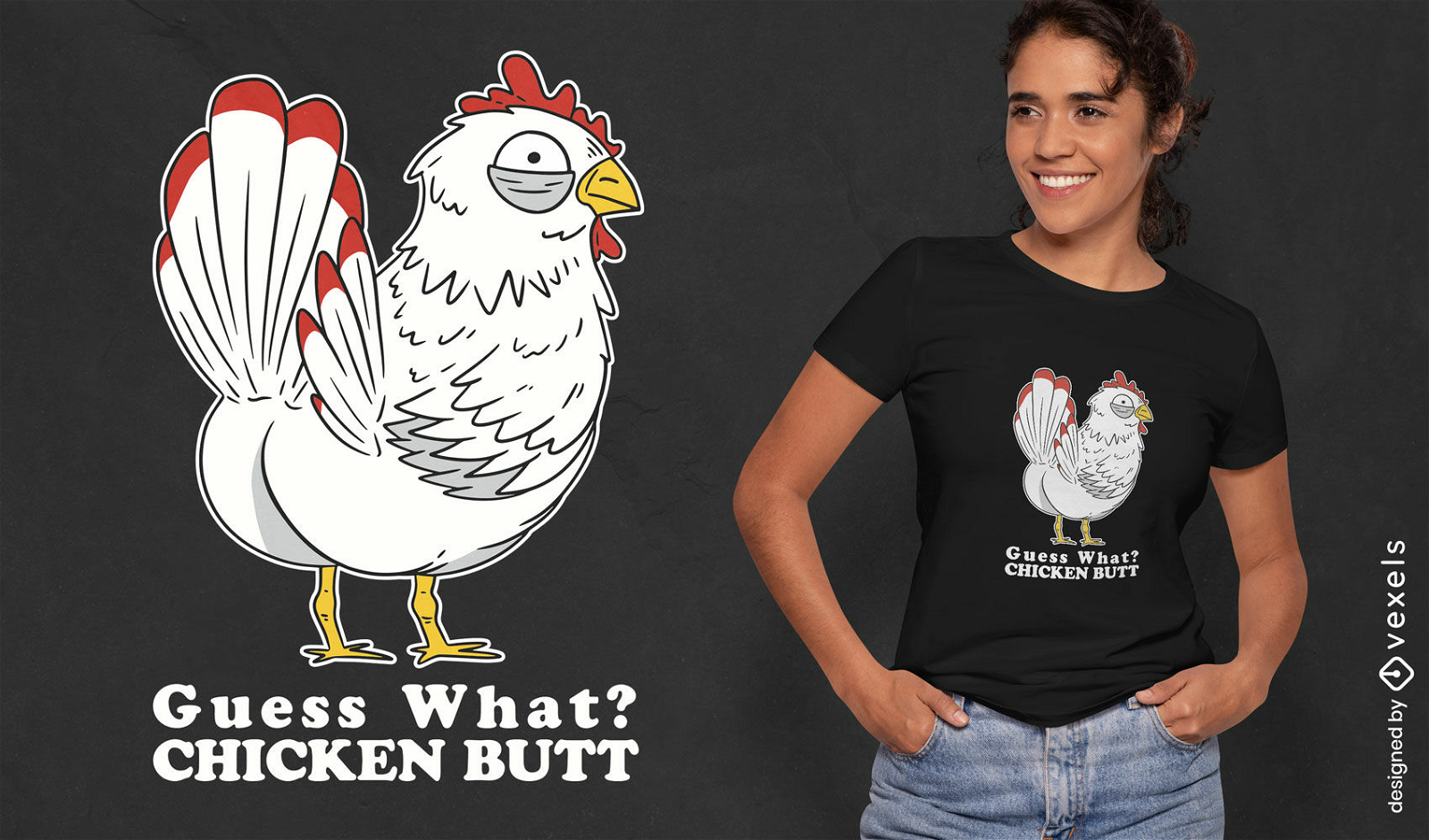Guess what? Chicken butt! If you’ve ever heard this playful retort, you’ve probably chuckled or at least cracked a smile. This silly phrase has been a staple in the realm of childhood jokes and playful banter for decades. But where did it come from, and why has it stuck around for so long? Let’s dive into the whimsical world of “Guess what? Chicken butt!” and its equally amusing counterpart, “Guess why? Chicken thigh!”
History and Origin of the Phrase
The origins of “Guess what? Chicken butt!” are somewhat murky, as is often the case with popular phrases that spread through oral tradition. Some suggest it may have roots in the mid-20th century, a time when playful, nonsensical humor was on the rise in American culture. The phrase likely started as a simple, rhyming joke that caught on due to its catchy nature and the element of surprise.
The Phrase in Pop Culture
Over the years, “Guess what? Chicken butt!” has popped up in various forms of media. From children’s TV shows to casual dialogues in movies, the phrase has made its mark. One of the most notable appearances was in the TV show “The Simpsons,” where Bart Simpson used it, further cementing its place in pop culture. The phrase’s inclusion in such a popular show helped introduce it to a wider audience, spanning generations.
Linguistic Analysis
So, what makes “Guess what? Chicken butt!” so memorable? Part of its charm lies in its phonetic appeal. The rhyme and rhythm of the words create a pleasing auditory experience, making it easy to remember and repeat. The simplicity of the phrase also plays a role, as it’s straightforward enough for young children to grasp and enjoy.
The Humorous Element
Humor often hinges on surprise, and “Guess what? Chicken butt!” delivers just that. The unexpected pairing of “chicken” and “butt” catches listeners off guard, leading to laughter. It’s a form of humor that’s simple yet effective, relying on the absurdity of the phrase to elicit a response. This kind of humor is akin to other playful retorts and nonsensical phrases that have stood the test of time.
Guess Why? Chicken Thigh!
As with many popular phrases, “Guess what? Chicken butt!” has evolved. Enter “Guess why? Chicken thigh!” This extension adds another layer of fun, maintaining the original phrase’s rhythm while introducing a new twist. It’s a natural progression that keeps the humor fresh and engaging, showing how playful language can adapt and grow.
Cultural Significance
Interestingly, “Guess what? Chicken butt!” has crossed cultural boundaries. While its origins are likely American, variations of the phrase have been adopted and adapted worldwide. The playful nature of the phrase resonates with people from different backgrounds, highlighting the universality of humor and the joy of lighthearted banter.
Psychology Behind the Phrase
Why do we love phrases like “Guess what? Chicken butt!”? It boils down to the psychology of humor and human connection. Playful banter fosters social bonds, creating moments of shared laughter and joy. For children, such phrases are a gateway to understanding humor and engaging with peers. For adults, they serve as a nostalgic reminder of simpler times.
Usage in Social Interactions
Despite its silliness, “Guess what? Chicken butt!” has a place in various social settings. It’s often used to break the ice, lighten the mood, or simply amuse friends and family. The phrase is versatile, and suitable for casual conversations where a touch of humor is needed. However, knowing when and where to use it is key, as its playful nature may not always be appropriate in more formal contexts.
Memes and Internet Culture
In the age of the internet, “Guess what? Chicken butt!” has found new life as a meme. Digital culture thrives on catchy, humorous content, and this phrase fits the bill perfectly. Memes featuring “Guess what? Chicken butt!” often play on its absurdity, creating new variations and spreading the phrase to even wider audiences. From GIFs to viral videos, the phrase has become a beloved part of online humor.
Merchandising and Marketing
The popularity of “Guess what? Chicken butt!” has even spilled over into the world of merchandising. T-shirts, mugs, and other novelty items featuring the phrase are common, and appealing to those who enjoy a good laugh. Some brands have also leveraged the phrase in marketing campaigns, using its playful nature to engage with customers and create memorable advertisements.
Children and Playfulness
For children, “Guess what? Chicken butt!” is more than just a joke; it’s a way to engage in playful language and develop a sense of humor. The phrase often appears in children’s games and activities, encouraging creativity and social interaction. It’s a simple yet effective tool for teaching kids about humor and the joy of playful communication.
The Phrase in Literature
Surprisingly, “Guess what? Chicken butt!” has also found its way into literature. Some authors use the phrase in dialogue to capture the playful essence of their characters or to evoke a sense of nostalgia. It’s a testament to the phrase’s versatility and enduring appeal, proving that even the silliest of sayings can have a place in more serious contexts.
Evolution of Playful Language
“Guess what? Chicken butt!” is just one example of how playful language evolves. Similar phrases have existed throughout history, each with its unique charm. As language continues to evolve, new playful phrases will undoubtedly emerge, continuing the tradition of lighthearted humor and linguistic creativity.
Conclusion
In conclusion, “Guess what? Chicken butt!” and its playful companion “Guess why? Chicken thigh!” are more than just silly sayings. They represent the joy of humor, the power of language, and the enduring appeal of playful banter. These phrases have woven themselves into the fabric of our culture, bringing smiles and laughter to people of all ages. So next time someone asks, “Guess what?” you know exactly how to respond.
